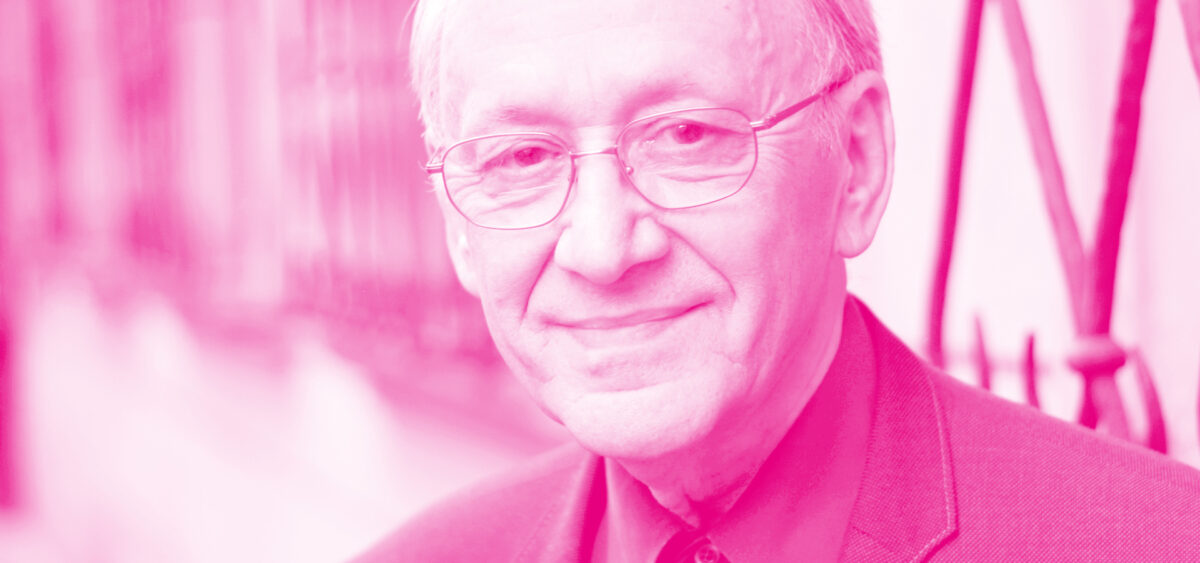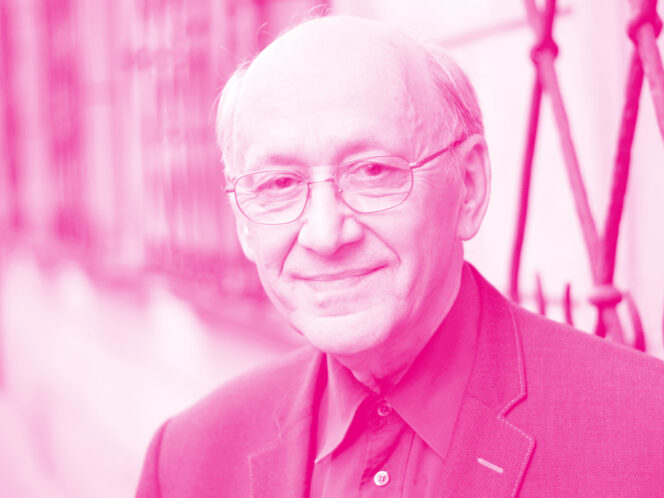
Contemporary science has revolutionized our imagination. Wojciech Bonowicz talks to cosmologist, philosopher, and Roman Catholic priest Michał Heller about the steam engine, theology, and the physical problems with materialism.
Wojciech Bonowicz: To start with, I would like to ask you about your earliest stirrings of the imagination—those of your childhood. What did they look like? Did you imagine the future, or perhaps other worlds?
Michał Heller: I will start with a more general observation. In childhood and youth, imagination plays a much greater role than anything else, because rational thinking is learned gradually, step by step, and imagination awakens with consciousness or immediately afterwards. It is disobedient—it takes me where it wants, not where I would like it to go. What’s more, with time, a person becomes willing to go in the direction in which imagination leads them because imagination has something captivating about it. The surrounding world is at first quite impoverished. One of the first impressions I remembered was seeing the crossbar in the crib where I slept. The cot was surrounded by a net so that I wouldn’t fall out of it, and that net ended with the crossbar. When I looked towards the window, this crossbar was in my way, and that was why I remembered it.
You were three-and-a-half years old when the war broke out and you had to flee with your family. Then there was deportation into Russia. Was the atmosphere of danger and the frequent changes of location conducive to escaping into the world of imagination?
I would be inclined to say that they were neither conducive nor unconducive; it was just as it should be. That is, for the adults it was a cataclysm, a crisis, but for me another event that everyday life brought with it. When Russian soldiers came to us in Lviv and told us to pack, the grown-ups packed things and I stared at the rifles because I liked them so much. As a child, I was quite effectively protected from the horror of what was happening.
What about the experiences that enter the body strongly, such as hunger? Do they make the imagination shrink, or on the contrary?
I remember the experience of hunger very well. I imagined a slice of bread that I would like to eat, but there was no bread. In Siberia, my grandmother took care of the kitchen. She came up with all sorts of substitutes. For example, scrambled eggs in which there were no eggs, only a little flour mixed with water. Something else was added and we got these liquid noodles, which my grandmother called scrambled eggs. It was the same with ice cream. Someone brought home frozen milk, you would chip off a piece and lick it, while grandma talked about the kinds of ice cream eaten before the war. I remember one scene from before the war: I must have had some stomach problems, because my mother took a banana, peeled off the skin, and served its contents to me with a spoon. Throughout the war, that banana was for me a symbol of something extremely tasty, even luxurious. I still like bananas.
How is our idea of the world actually shaped? How does this world expand for us?
The starting point is very specific things. In my case,








